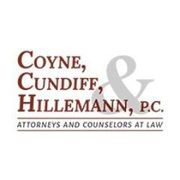
After sustaining an injury due to an accident caused by someone else's negligence, you could find yourself facing large medical bills, lost wages, and even disability. When that occurs, it's time to consider a personal injury claim. Typically, there are two broad categories of torts—or civil wrongs—that can lead to a lawsuit. The first is intentional, and the other is negligent. Below is an introduction to both.
What Is a Negligent Tort?
A personal injury case based on negligence requires you to prove four elements: the defendant had a duty of care, they breached that duty, you suffered harm or loss, and their actions were the cause of your loss. For instance, all drivers have a duty of care to drive safely and not put other motorists or pedestrians at risk.
 Businesses and homeowners likewise have a duty of care to provide safe conditions for visitors. For instance, if a business fails to mop a water spill and place "Wet Floor" signs to warn customers, they could be liable for any resulting slip and fall injuries.
Businesses and homeowners likewise have a duty of care to provide safe conditions for visitors. For instance, if a business fails to mop a water spill and place "Wet Floor" signs to warn customers, they could be liable for any resulting slip and fall injuries.
What Is an Intentional Tort?
Intentional torts include voluntary actions that result in loss or harm to another. Assault, battery, defamation, slander, false imprisonment, and trespass are common intentional personal injury claims. Note that although some of these are also crimes punishable by state prosecution, tort cases occur in a civil courtroom and result in no criminal penalties.
How Do Damages Differ?
Penalties for intentional torts are stiffer and broader than those for negligence torts do. In negligence cases, the plaintiff may win compensatory damages—for example, repayment of medical expenses they have incurred. They may also win non-compensatory damages to account for emotional distress or pain and suffering.
For intentional personal injury cases, the plaintiff may receive compensatory and non-compensatory, as well as punitive damages. This is meant as a punishment for the defendant's behavior and to discourage people and businesses from intentionally inflicting harm on others.
If you sustained a personal injury, contact Coyne, Cundiff & Hillemann, P.C., in Lake St. Louis, MO. They serve clients across St. Charles County, and the team has more than 75 years of combined legal experience. They also specialize in DUI defense, workers’ compensation claims, divorce, and family law. Visit their website to learn more about the process or call (636) 561-5599 to discuss a personal injury claim.
About the Business
Have a question? Ask the experts!
Send your question

